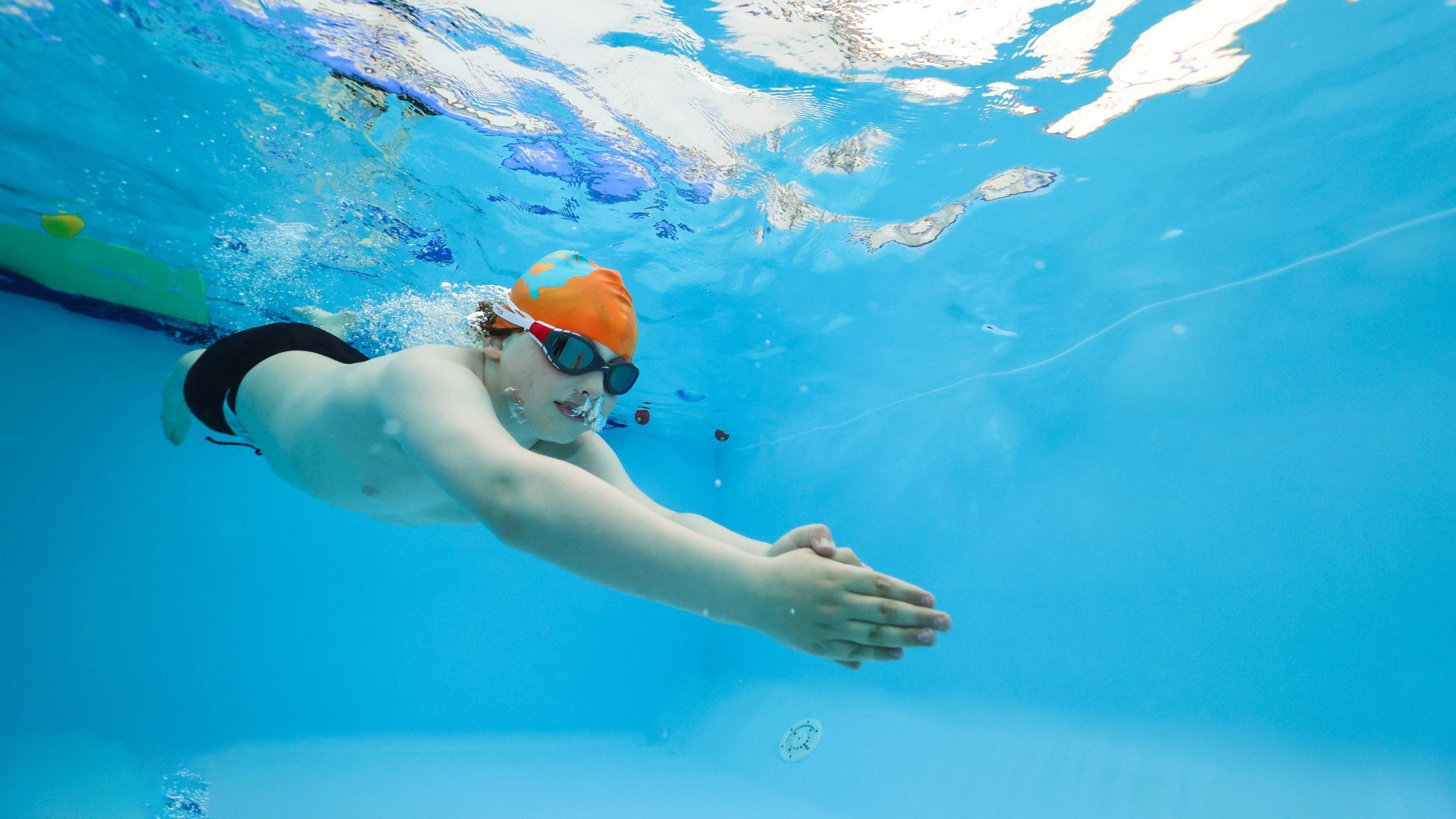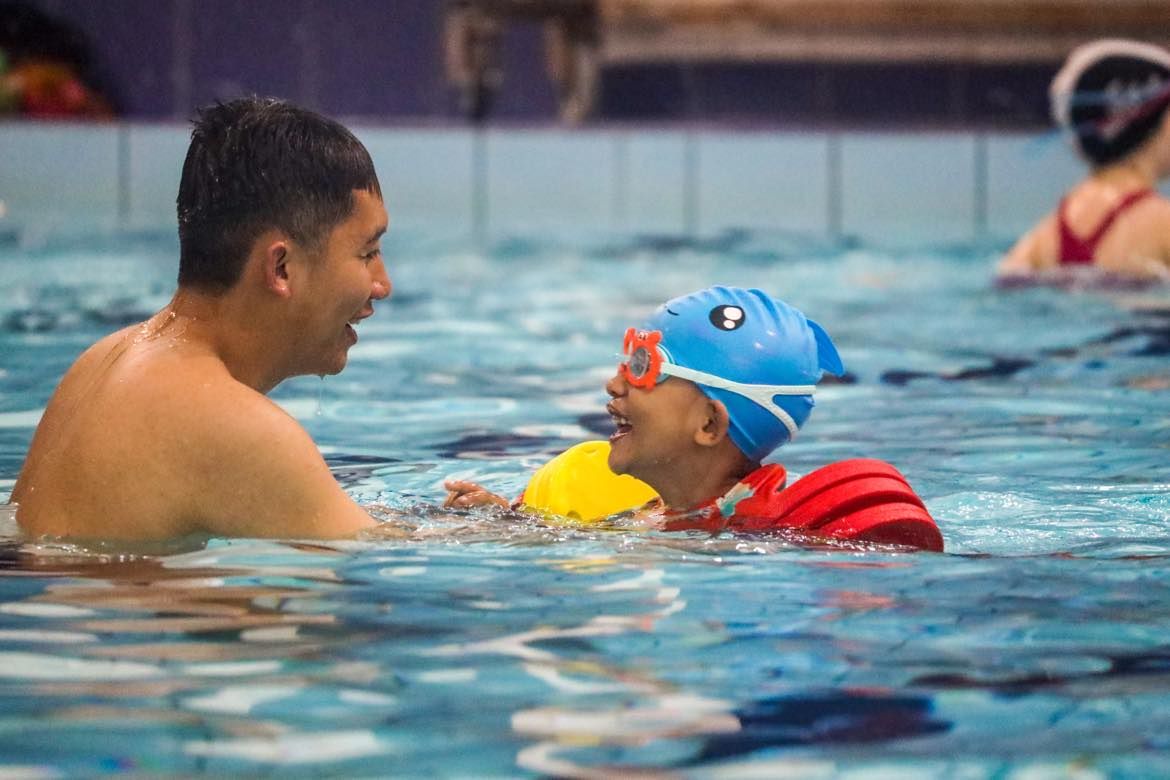The Importance of Early Swimming Lessons for Children
Introducing swimming to children at an early age isn't just about having fun in the water it's a strategic step toward building water confidence, enhancing physical and cognitive development, and ensuring lifelong safety. From developing coordination and resilience to teaching critical survival skills, early swim lessons offer numerous long-term benefits that extend far beyond the pool.

For families seeking high-quality instruction and professional swim programs, The Leisure Experts provide a structured and nurturing environment tailored to young learners. Let’s explore the many ways early swimming lessons support a child’s development and prepare them for lifelong safety and confidence in the water.
Psychological & Emotional Benefits
Introducing swimming lessons early in a child’s life has far-reaching emotional and developmental rewards. It’s not just about learning strokes - it’s about helping children feel safe, confident, and emotionally secure in a water environment. Early swim exposure gently supports toddlers and young children in overcoming fear, building comfort with their surroundings, and developing a positive relationship with physical activity. These early emotional wins lay the foundation for self-trust, resilience, and a growth mindset.
Swimming also promotes social and cognitive growth. In group settings, children practice listening, taking turns, and following structured routines. These interactions build valuable emotional intelligence and can translate into better behaviour, attention span, and cooperation in school and daily life.
Building comfort with water
For toddlers and young children, the sensory experience of water can initially feel unfamiliar. Gradual exposure to swimming environments helps normalize aquatic sensations and movements.
Key benefits include:
- Reduced anxiety around pools or open water
- Comfort with floating, splashing, and submersion
- Emotional security when guided by trained instructors
Introducing swimming early supports long-term comfort and prevents negative associations. Families can explore tailored programs at the Swim Academy to start children on a positive journey with water.
Overcoming water-related fear
Some children may have a fear of water due to limited exposure or past experiences. Professional swim instruction provides structured, reassuring methods to help kids feel in control.
Methods often include:
- One-on-one coaching for anxious swimmers
- Positive reinforcement and peer modelling
- Gradual immersion techniques that build trust
Children who learn in a supportive setting like those delivered by instructors qualified through TLE Learn often progress faster and gain confidence that translates beyond swimming.
Increased focus and social development
Group swimming lessons encourage children to interact with peers, follow directions, and participate in coordinated activities. This structure supports cognitive and emotional growth, especially for toddlers.
Benefits include:
- Improved listening and response time
- Learning to take turns and cooperate
- Boost in self-esteem after mastering new skills
Studies shared on HealthyChildren.org highlight how swim programs promote mental development in pre-schoolers and toddlers alike.
Physical Development & Health
Swimming is a powerful activity for physical development, especially during early childhood when coordination and motor skills are forming. Water provides natural resistance, supporting muscle engagement and building strength without the strain of impact. Through repetition and movement, children improve not only physically but also neurologically, enhancing motor planning and sensory processing
Regular swimming also promotes cardiovascular health, improved sleep, and overall stamina. For parents looking to give their children a head start in physical development, water-based activity is both fun and fundamental.
Enhancing coordination and balance
Early swim instruction engages large muscle groups and supports neuromuscular development. Moving in water requires children to coordinate their arms, legs, and breathing in synchrony.
This leads to:
- Better hand-eye coordination
- Increased balance and core stability
- Greater body awareness
Children often demonstrate improved performance in other physical activities and sports after consistent swimming.
Early muscle development
Swimming builds muscle strength while placing minimal stress on joints—ideal for growing bodies. Activities like paddling, floating, and kicking provide full-body exercise.
Key outcomes:
- Strengthened arm, leg, and core muscles
- Improved flexibility and posture
- Development of fine motor control through water play
This foundation is especially valuable for children with low muscle tone or those requiring additional motor development support. Programs such as our Swim Academy are designed to cater to all developmental stages.
Strengthening heart and lungs
Swimming promotes cardiovascular fitness from a young age. Controlled breathing exercises during swimming teach children how to manage oxygen flow and improve lung capacity.
Health benefits include:
- Enhanced respiratory endurance
- Stronger heart function
- Reduced risk of childhood obesity
Regular aquatic activity also promotes better sleep and immune function, especially when incorporated into a child’s weekly schedule through regular programmes. Initiative like The Leisure Experts Memberships are a great way for the whole family to get involved in the community and keep learning regular.
Safety and Lifesaving Readiness
One of the most critical advantages of early swimming is preparing children for water-related emergencies. With drowning risks still present even in shallow water, swim survival skills can be life-saving. Starting early ensures that children build instinctual safety responses such as floating, treading water, or reaching the pool edge.
Swim instruction at The Leisure Experts integrates safety training into every lesson, empowering children and educating parents to work together in creating a safer environment.
Learning float and paddle techniques
Floatation and paddling are foundational skills in swim readiness. Toddlers and young children taught how to float can stay above water in unexpected situations.
Essential techniques include:
- Back floating to conserve energy
- Basic front paddle to move toward safety
- Treading water for short durations
These basic actions form the foundation of drowning prevention, which is especially relevant given the high number of incidents in home pools and open water. More insights are detailed in this Wikipedia article on swimming lessons .
Swim survival skills
Beyond strokes, children learn essential survival skills such as reaching for the pool wall, climbing out independently, and turning to float.
Common survival components:
- Jump-turn-swim to safety techniques
- Understanding pool edges and drop-offs
- Practicing safety drills in shallow water
Structured vs. Unstructured Learning
Balancing structured swim lessons with informal water play allows children to explore and develop holistically. Structured learning provides direction, accountability, and measurable progress. Meanwhile, unstructured play builds creativity, autonomy, and emotional comfort with the water. When combined, these methods lead to a lifelong love of swimming and water safety.
Advantages of formal swim education
Enrolling a child in a professionally run program provides the consistency and structure needed for rapid progress. Programmes like the ones at The Leisure Experts are led by certified instructors trained in child-specific methodologies.
Key benefits:
- Custom lesson plans per age group
- Monitoring of swim development milestones
- Certified and insured instructors
Children thrive when guided with patience, progression, and clear goals—especially in the formative years of their development.
Informal play and its benefits
In contrast, unstructured play supports curiosity, creativity, and sensory exploration. It allows children to interact with water at their own pace, developing trust and positive associations.
Benefits of free water play include:
- Enhanced confidence through self-exploration
- Development of risk assessment skills
- Strengthened bond with caregivers in the water
Parents are encouraged to use shallow pools or water tables at home as safe, supervised environments for exploration. These unstructured play experiences are most effective when combined with formal instruction. As noted in this Reddit discussion , many parents have observed developmental benefits from introducing their children to water early under proper supervision.
Combining both for holistic learning
The most successful swim journeys integrate structured lessons with informal exposure. Children benefit from repeated contact with water in various contexts—lessons, playdates, and family swim time.
Recommended approach:
- Weekly lessons through a formal program
- Free swim time with active adult supervision
- Routine reassessments of skill progression
More Articles




Locations
Contact us


